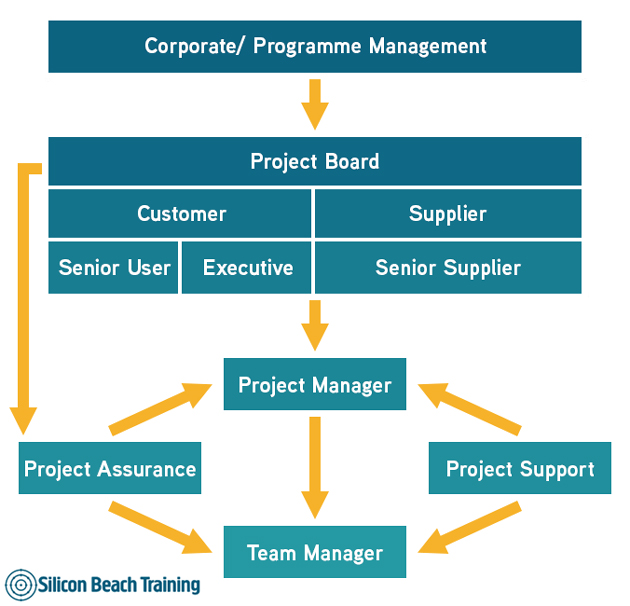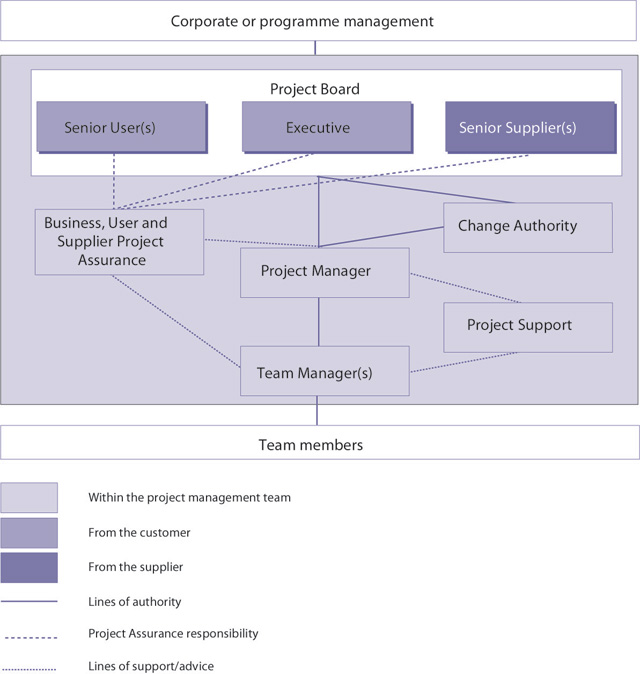Basic planning is essential to the development and growth of any business, but knowing how to plan well is a skill in and of itself. A masterpiece can't be made without careful consideration of the tools available, the methods to be employed and the end-target.
No one knows this fact more than a project manager upon whose plans rest entire company endeavours, as we explained in our analysis of the PRINCE2 Planning Theme.

There's a time and a place for spontaneity (ironically) but when it comes to the successful completion of a project, planning is fundamental, which is why it is such a pivotal part of our PRINCE2 Project Management Courses.
So just why is planning so important, especially when project management is concerned? How do you go about it, and within a project, who is responsible for planning what?
Why So Important?
Let's make it clear - when I'm referring to a plan here, I'm not specifically (or necessarily) referring to a formal document associated with any of the major project management methodologies. Instead, I am referring to the general 'concept' of planning but with specific reference to project management.
As such, we'll take a look at the more formal aspects of planning an actual project but also look at the more general planning that can be applied to both projects and other aspects of life.
Firstly with regards to projects, let's take a look at why planning is so important for:

Team Members
Psychologically speaking, forward planning makes a huge impact on a worker because it clearly sets out the criteria they must meet in order to be deemed successful. Having that clear set of criteria in mind gives them something to aim toward.
This in turn breeds greater focus and drive and enhances productivity because they are able to see themselves develop step-by-step, identify 'wins' and failures and pinpoint their value within a project.
Andy Trainer
5 Mar 2013
Within the PRINCE2® framework, the relationship between the corporate/programme management and the project management is important to define, especially with regard to progress. In this post, we'll explain the roles that corporate/programme management (hitherto c/p management) must fulfill and clearly set out the responsibilities of the project management in terms of notifying and updating c/p management on the progress of the project.
You can learn how to apply PRINCE2 to your projects on our PRINCE2 Practitioner Course.
Philosophy
For c/p management, it's about spending as little time as possible involved in the project whilst still maintaining overall control. This is termed 'management by exception'. Effectively this means that the c/p management approve the initial project plan and it's constraints, and then receive weekly or monthly updates (or whatever interval is appropriate for the time-frame) from the project management. So long as everything is running within the approved constraints, there should be no need for regular face-to-face meetings.
If the project does go outside of these pre-approved parameters then it is the c/p management's prerogative as to whether a review meeting is necessary.
Aside from overall approval of the direction and parameters of the project, the c/p management has other responsibilities to ensure the project runs effectively:

Andy Trainer
17 Dec 2012
As taught on our PRINCE2® Training course, PRINCE2 is a methodology that can be tailored to any project. Therefore it is necessary for there to be a project management structure that can also be tailored to any project.
Using this structure allows us to identify who does what on a project without knowing anything about its size or complexity. The team structure is divided into roles, not jobs and so can be allocated individually or even combined.
Here is our flexible project management team structure:

Here at Silicon Beach Training we pride ourselves on our successful PRINCE2 Foundation training having a 99% pass rate. It must be something to do with the Brighton air, or maybe it's the quality of our training!
Defining the project management team structure
The corporate/ programme management site at the top but pass the decision making down to the Project Board. If you want to sit at this level you need MSP training, which is the next step after completing your PRINCE2 Practitioner training.
The Project Board are also busy on roles outside of the project and so delegate the day-to-day running of the project to the Project Manager. They are there to make the key decisions but if they believe they don't have the time or the right skills then they can appoint somebody to Project Assurance to monitor the project for them.
Andy Trainer
20 Apr 2012
PRINCE2® Themes – Organisation
The purpose of the Organisation theme is to define and establish the project’s structure of accountability and responsibilities (the who?).
There are four layers of management in a project:
- Corporate or Programme Management
- Project Board
- Project Manager
- Team Managers

© Crown Copyright 2009. Reproduced under Licence from OGC
- Executive – a key decision maker who owns the business case
- Senior User – Provides user resources. Defines and verifies user requirements and expectations.
- Senior Supplier – Provides supplier resources.
- Project Assurance – Advises on selection of team members. Advises on stakeholder engagement.
- Project Manager – Prepares strategies. Reviews and updates project management team structure. Prepares role descriptions.
- Team Managers – Manage team members. Advises on team members and stakeholder engagement.
- Project Support – Provide administrative support to the project management team.
Some of the PRINCE2 roles cannot be shared or delegated. The Project Manager role cannot be shared or the decision making roles and responsibilities of the Project Board or Project Manager.
Andy Trainer
12 Jul 2007
Within the Directing a Project (DP) stage of PRINCE2®, authorising a project is a particularly important process.
Without it, the next stage plan cannot be approved which means that the project cannot proceed.
In this post we'll take a look in more detail at why it is a necessary process, who is responsible for each aspect and how it should be carried out.
If you'd like to find out more about PRINCE2 processes like authorising a project, try our PRINCE2 Courses.
Why is it Needed?
By using this process it means that the project board can make sure that there is:
- An acceptable Business Case in place (read 'What is a Business Case?' for more details)
- The goals and methods of the project match that of the corporate strategy
- An acceptable set of tolerances (and scope) has been set
- Risks are accepted and outlined fully
- The right controls have been set

Andy Trainer
4 Feb 2013
Some people say otherwise, but a wedding *is* a project. It has a set purpose and the project has an end date. It has a project team, project manager and most certainly has a budget. Certain milestones must be achieved at certain times in order for the goal to be reached. Later goals depend on achieving earlier ones.
So, you could be a PM professional with a wedding to plan; or you might have found us because you are a bride-to-be looking for structure to tackle this massive task. You could take our 1-day Project Management course, or even our PRINCE2 qualifications to really know how to manage your wedding! Following on from our popular Project Manage Your Life, here’s our simple guide to project managing a wedding:

Benefits Criteria
The first thing to do is identify the benefits criteria that will define project success. These can be such things as:
- Everyone being where they should be at the right times
- Happy guests
- No family conflict (yes, it’s a factor)
- (For the bride), feeling beautiful
- Having a stress-less wedding planning experience
- Choosing wedding suppliers you can trust to deliver
Andy Trainer
6 Aug 2012